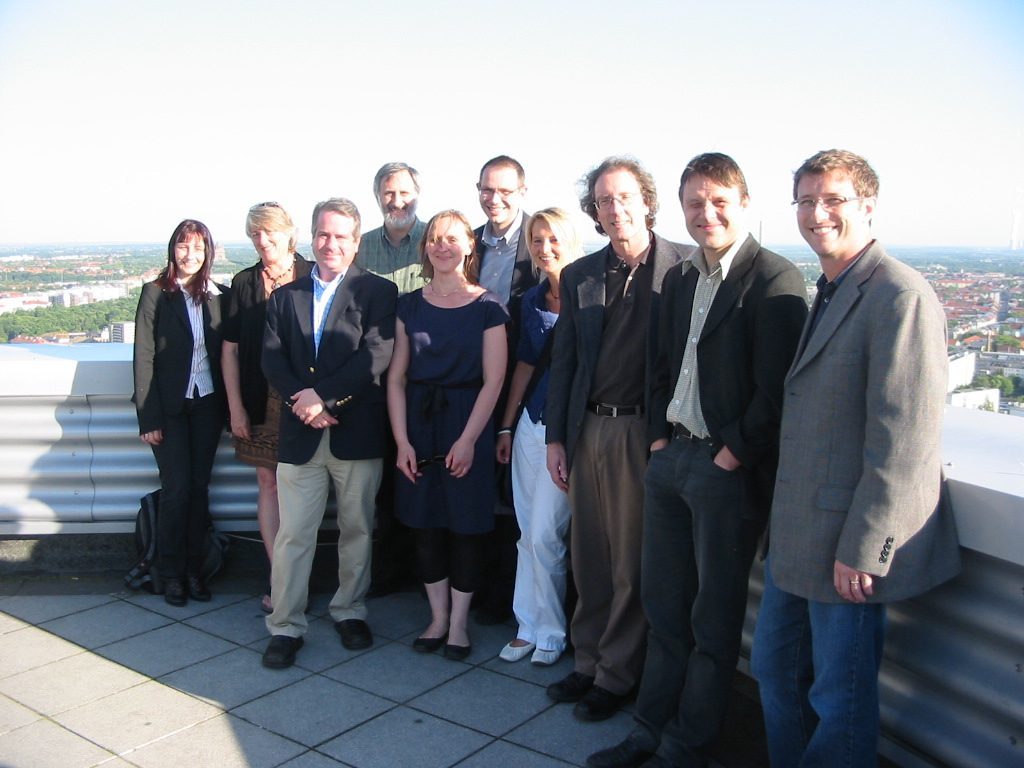3rd Vanderbilt-Leipzig Cooperation Workshop
The 3rd Cooperation Workshop of Leipzig and Vanderbilt Universities took place in Leipzig on May 25th until 29th, 2011. It was organized by the Top-Level Research Area 3 “Molecular and Cellular Communication” (PbF3) Six faculty from Vanderbilt University visited Leipzig, participated in a scientific symposium, and used the opportunity to get in touch close contact with researchers from Leipzig University and non-university institutions.
The guests were heartily welcomed by new university rector, Prof. Dr. Beate A. Schücking on Wednesday evening at the top of Leipzig’s old university building, now the Panorama Tower in the city center.
On Thursday, a public scientific symposium took place at the seminar building, eagerly visited by students, PhD students and faculty from around the university.
Speakers from both Leipzig and Nashville included:
Terry P. Lybrand (Vanderbilt): Molecular modeling of cyclooxygenase-‐inhibitor complexes: Insights into the molecular basis of inhibitor selectivity and reaction mechanism
Jeffrey N. Johnston (Vanderbilt): The Development of New Reactions and Reagents for the Total Chemical Synthesis of Natural Products and Therapeutics
Jörg Rademann (Leipzig): From C-acylations with amino acid building blocks to some applications in fragment-based drug discovery
John McLean (Vanderbilt): Advances in structural mass spectrometry for integrated omics and systems biology
Martin von Bergen (Leipzig): Integrated serum proteomic and metabolomic profiling reveals association of the complement system with obesity and identifies novel markers of body fat mass changes
Heidi E. Hamm (Vanderbilt): New insights into mechanisms of receptor-mediated G protein activation
Vsevolod V. Gurevich (Vanderbilt): The two faces of arrestin molecule: structural insights into biology
Jens Meiler (Vanderbilt): Modeling G-Protein Coupled Receptors and their Interactions
On Friday the guests visited the Wolfgang Köhler Primate Research Center, guided by a member of the Max Planck Institute for Evolutionary Anthropology, who explained behavioral research with primates and dogs undertaken by the MPI researchers.
Afterwards, Vanderbilt faculty met with many different researchers from Leipzig University on an individual basis to visit labs and work groups and discuss on-going or newly proposed research initiatives. Additionally, Leipzig presented its Integrated Research and Treatment Center for AdiposityDiseases. Here multiple common research interests of faculty from both university meet and cooperation will start in the next months.
A meeting with the new vice-rector research, Prof. Dr. Matthias Schwarz, explored strategies to expand the cooperation in life sciences and biomedicine to other disciplines, notably in mathematics.
The visit was framed by a social program where other aspects of Leipzig – the city of music, the old industrial center, the coal mines and re-cultivation efforts – were presented.
The workshops shall now – after an initial stage, generous financed by the German Research Foundation (DFG), the Top-Level Research Area 3 of Leipzig, and sources from Vanderbilt University – take place in a yearly interchange and will be accompanied by a yearly “Leipzig-Vanderbilt Summer School” on different foci starting in 2012.

